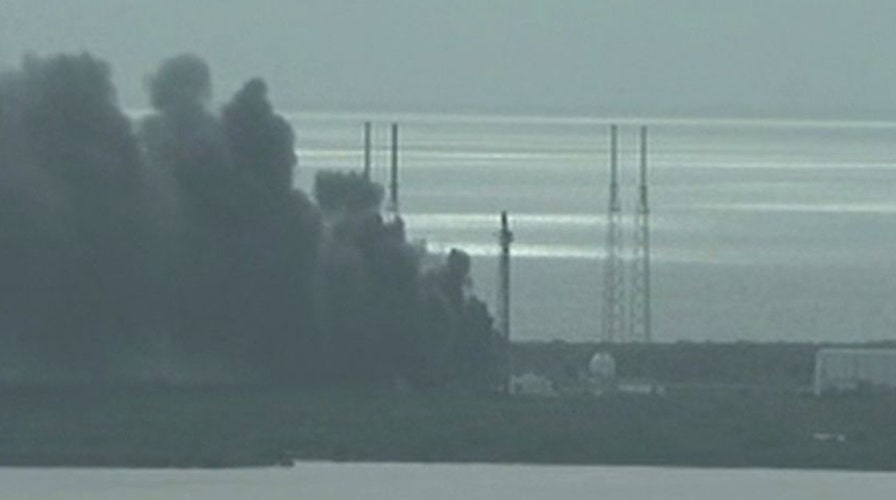Explosion on launch pad destroys SpaceX rocket, satellite
SpaceX says no injuries in explosion
An unmanned SpaceX Falcon 9 rocket exploded on the launch pad during a test Thursday morning, destroying the rocket and an Israeli satellite called Amos-6.
The company said that no people were injured in the accident.
"SpaceX can confirm that in preparation for today's standard pre-launch static fire test, there was an anomoly on the pad resulting in loss of the vehicle and its payload," SpaceX said in a statement on Thursday morning. "Per standard procedure, the pad was clear and there were no injuries."
According to the 45th Space Wing, the explosion occurred at 9:07 am, and there was "no threat to public safety."
The rocket and its satellite payload were scheduled to be launched this Saturday from Cape Canaveral Air Force Station. The satellite was also going to be used by Facebook, and the social network's CEO, Mark Zuckerberg, mourned the loss.
"As I'm here in Africa, I'm deeply disappointed to hear that SpaceX's launch failure destroyed our satellite that would have provided connectivity to so many entrepreneurs and everyone else across the continent," Zuckerberg wrote on Facebook.
The value of the satellite has previously been pegged at $195 million, according to Space.com.
Buildings several miles away shook from the blast, and multiple explosions continued for several minutes. Dark smoke filled the overcast sky. A half-hour later, a black cloud hung low across the eastern horizon.
The initial blast sounded like lightning, but was followed by the sounds of more explosions. SpaceX is one of two companies shipping supplies to the space station for NASA. It's also working on a crew capsule to ferry station U.S. astronauts; that first flight was supposed to come as early as next year.
Images shared on Twitter after the explosion showed black smoke coming from the launch pad. And a video showing the explosion has been published by USLaunchReport.
The rocket that exploded was a Falcon 9, in an accident that occurred right before a test of the rocket's main engines, according to a Twitter post by William Harwood, a reporter with CBS news.
"It is unusual but not unprecedented for a rocket to blow up on the pad during pre-launch testing," Jonathan McDowell, an astronomer with the Harvard-Smithsonian Center for Astrophysics, wrote on Twitter. He estimated that there hadn't been an accident of this nature at Cape Canaveral since 1959.
Last year, another SpaceX rocket was lost when it blew up minutes after take off.
Astronauts up on the International Space Station were conducting a space walk Thursday morning, installing cameras and retracting a thermal radiator, according to NASA TV.
The Associated Press contributed to this report.









































